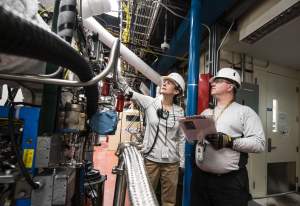Description
Learn How to Minimize Human Performance Errors in Your GMP Facility
Human error is the primary cause of quality and production losses in many industries. Several variables that affect human behavior—such as procedures, training, and workplace environment—can be manipulated to reduce the likelihood of these occurrences. But you need to understand human behavior and the psychology of error, and know exactly where the weaknesses of the system lie, so that you can improve and/or fix them.
Learn how to effectively address human performance issues in GMP related environments in this power-packed virtual boot camp by industry expert Ginette Collazo. Collazo will walk you through practical approaches, tools and models to address human performance issues by using a particular methodology to correct, prevent, and avoid error recurrence.
In session 1, Collazo will provide an overview of the human error phenomena, and explain the importance of human error prevention/reduction. You will learn the psychology of error, the importance of motivation and attention, as well as facts about human error, and the impact of culture, collective behavior, and habits. Plus, you will learn a few important models and formulas.
In session 2, Collazo will discuss human error as the root cause, explain how human error is controlled, and walk you through the root cause determination process. You will learn the 6-step method for error prevention, human error rate measurement, trending and tracking, prediction, as well as CAPA effectiveness. Plus, you will learn about important error reduction tools, metrics, and KPIs.
After attending this comprehensive virtual boot camp, you will be armed with the knowledge and the practical tools you need to identify, predict, measure, track, prevent, and fix human error-related performance issues in your GMP regulated manufacturing facility.
Session Details
Session-1:Understanding Human Error in GMP environments
This session will bring you up to speed with:
Session Highlights
- Background on human error phenomena
- Understanding human error in the workplace
- Types of errors
- HE rates (formula)
- Human error reduction model
- Psychology of error
- Human error vision
- The Taxonomy of Human Error©
- HES Investigation Framework© (root causes)
- Management systems
- Human error cause categories
- Cognitive load subcategory
- Human capabilities
- Motivation and attention
- Facts about human error
- Culture, collective behavior and habits.
- General understanding of human behavior
Session-2: Implement and Reduce Human Error in GMP Environments
This session will bring you up to speed with:
Session Highlights
- What is human error
- Human error as the root cause
- How to control human error
- Human Factors Categories (HFC)
- Importance of and recommendations for each HFC
- Human error risk multipliers
- Root cause determination
- 6-step method for error prevention
- Human error rates and measurement
- Trending and tracking
- Prediction
- CAPA effectiveness
- Metrics and KPIs
- Tools (HES tools, cognitive load tool, etc.)
This program is designed for:
- Training managers and coordinators
- Operations staff
- Manufacturing professionals
- Plant engineers
- QA/QC staff
- Process excellence/improvement professionals
- Industrial/process engineers
- Compliance officers
- Regulatory/legislative affairs professionals
- General/corporate counsel
- Quality personnel
- VP quality
- VP operations
This event brought to you by AudioSolutionz
(WiseQuestion is learner supported. When you buy through links on our site, we may earn an affiliate commission)
 Ginette Collazo, Ph.D. is a human error and human behavior expert. She has spent more than 15 years in technical training, organizational development and human reliability areas. She has worked with Bristol-Myers Squibb, Johnson & Johnson, Schering-Plough, Wyeth, and has been a consultant with major firms like Abbott, Johnson & Johnson, Perrigo, among many others. Also, has implemented human error reduction programs and technology globally. An active researcher in specialized studies related to human reliability, she is the author of numerous publications on these topics.
Ginette Collazo, Ph.D. is a human error and human behavior expert. She has spent more than 15 years in technical training, organizational development and human reliability areas. She has worked with Bristol-Myers Squibb, Johnson & Johnson, Schering-Plough, Wyeth, and has been a consultant with major firms like Abbott, Johnson & Johnson, Perrigo, among many others. Also, has implemented human error reduction programs and technology globally. An active researcher in specialized studies related to human reliability, she is the author of numerous publications on these topics.
28022019





